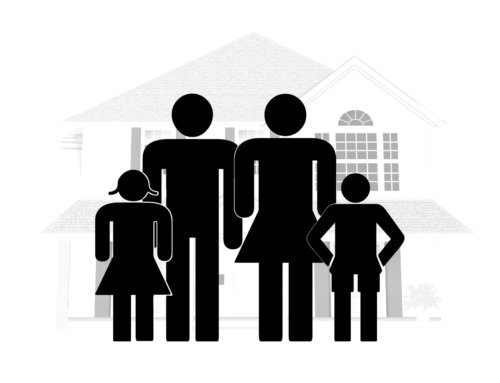If you or a loved one has been battling addiction, you’re not alone.
You might be looking into potential treatment options, as well as aftercare options, and seen sober living mentioned, but be left wondering what is a sober living home?
That’s exactly what we’re looking at in this article so you can research whether sober living is the right fit for you.
What Is a Sober Living Home?
Sober living houses are also known as halfway houses. This is because they’re a place people in recovery can go after an inpatient rehab center before they head back out into the world.
Sober living homes have an important role to play in the recovery process. After being in rehab, it can be very daunting for patients to throw themselves back into everyday life. These homes offer a great option to gradually move towards normality, without rushing in and increasing the chance of relapses.
Often, sober living facilities expect that you will have completed at least some level of inpatient rehabilitation program before arriving.
The Difference Between a Sober Home and Rehab
To understand how sober living homes work, it helps to understand how they differ from inpatient rehab centers.
In most rehab centers, patients are in a very intensive recovery program. Often when a patient admits themself to a rehabilitation center, they are prevented from leaving until they have completed a certain amount of treatment.
Rehabs don’t reflect much of real life. Most of the treatment revolves around dealing with the underlying issues beneath the addiction, as well as teaching patients how to better cope with triggers. While sober homes will help you continue to do this, they’re a much closer reflection of the real world than rehab centers are.
You can leave a sober living home at any time, you’re not bound to live there. While many sober living houses have curfews, you’ll have far more freedom than in rehab.
The Benefits of a Sober Living Facility
Living in a sober living facility has so many benefits for residents. First and foremost, is the people you’ll live with.
Friendships
For many recovering addicts leaving rehab means heading back to the same friends or social groups where triggers are abundant. Often even simple social activities like heading to a restaurant involve drinking.
This is a common cause for relapse for so many patients. It’s natural to want to socialize when you get out of rehab, it can be an isolating experience and you’ll have missed your friends.
In sober living, you can create new social groups with a focus on sobriety. They’ll understand the experiences you’ve been through and are focused on similar goals to you. This can help reinforce how important recovery is when times are hard.
Ultimately, these friendship groups can help as a great middle-ground before tackling social groups which may not be sober.
Finding Work
Many sober living homes will also help you find work. They’ll have contacts with career counselors and more who can help you with your resume and ensure you have the best chance of finding work. This helps ensure you have enough income that financial worries don’t become a trigger now you’ve left rehab.
Therapy
Rehabilitation centers start you off in therapy and this won’t change in sober living. Most sober living homes require you to attend group therapy with other residents and many offer individual therapy as well. This provides invaluable emotional support to help you continue your path of long-term sober living.
This therapy can also help you reconcile with loved ones in a safe and neutral environment with counselors.
Security
For many recovery addicts, going back out into the world feels terrifying and chaotic. Sober living ensures you have accommodation after treatment and buys you time to slowly rebuild your life after treatment.
Sober Living House Rules
Sober living sounds great, but you do need to follow whatever the rules of your sober living home are.
Every home will have slightly different rules, but the most important rule is to remain sober. This means no drugs or alcohol on the premises under any circumstances. Residents may also be tested at random in most homes.
Some sober living homes will make exceptions for prescribed medications like antidepressants, but others will not as prescriptions like Xanax can still be abused. Others may have a middle ground of allowing prescribed medications under supervision only.
As we mentioned above, you’ll be expected to have completed some kind of detox or rehabilitation program to ensure you’re sober before you enter the home. Most homes will also expect you to attend therapy or sobriety meetings at least once a week.
Another common rule is participation in household activities. This means group meetings as well as regular chores to help you take on more responsibility.
Many sober living homes have curfews to ensure residents are avoiding triggering environments. While guests are allowed, many sober living homes prevent overnight guests. This is often as rooms are shared with other residents.
Most sober living facilities expect you to stay at the facility most nights, if not every night. You’ll have more freedom in where you go during the day, but many require residents to have stayed sober for a certain period of time before longer day trips or overnight travels are allowed.
How to Find the Right Sober Living Home
There are so many sober living facilities available, it can be difficult to know which one is the right environment and home to aid your sobriety. That’s exactly why we started.
You can start with location. You may want to live close to relatives or friends so you can work on building your relationships with them.
You’ll also want to check the individual rules for sober living homes to ensure you can agree to them. For example, many sober living homes cater to only men, while other sober living homes cater to women. It’s all down to preference, you might prefer this single-sex environment or you may want a mixed-gender environment.
Make sure you can afford the expenses of your chosen sober living facility. Should you fall behind on payments, you’ll get evicted.
Problems with Sober Living Homes
Not all sober living homes are made equal. There are so many on the market and not all of them follow the same high standards they should.
In fact, some sober living homes have minimal oversight. This means some sober living homes do not provide the best environment for recovering addicts.
Relapses can and do happen, in sober living homes as much as anywhere else. But this is particularly true for those that are less structured and less controlled.
The best way to make sure you go to a reputable sober living home is to do your research. Look into many different potential sober living facilities and speak to the house manager. Better yet, go visit to make sure you actually like it there!
You should also look for online reviews and speak to other recovering addicts to find out where they recommend.
How Long Can I Stay in a Sober Living Home?
This is a very common question. With rehab programs, you tend to know exactly how long you’ll be in there before completing the program.
As there is no set program as such for sober living homes, there is no magic number.
The reality is, how long you stay in a sober living home comes down to you and your unique recovery journey. For some residents, a short 90-day stay helps set them on a good path for long-term recovery. For others, long-term sober living is a better option.
Provided you can afford the ongoing costs, most sober living homes let you stay for as long as you feel you need to.
What Happens If I Relapse in a Sober Living Home?
Relapses happen. They’re part of the recovery process for the vast majority of addicts and most sober living homes understand this.
For some zero-tolerance sober living homes, if you relapse you’ll be evicted. It’s a harsh reality, but it helps ensure residents know the risks.
Other sober living homes will give you a temporary suspension from the home. This gives you a chance to get clean again, which you’ll normally need to prove with a drug test.
If your relapse was minor or you’re otherwise doing very well, some sober living facilities let you stay. Their requirements might involve attending more meetings or some other step to help set you back on the path to long-term sobriety.
Find a Sober Living Home for You
Now you know the answer to ‘what is a sober living home’, you can make sure you find the right sober living home for you. For the best chances at long-term sobriety, you need to do your research to find a reputable home where you agree with the house rules.
TasteRecovery can help you do exactly that. You can look up sober living facilities near you with ease, check out the rules, and read reviews to make sure you find the best sober living home for you. Find out more answers to frequently asked questions on our site.










Leave A Comment